The #1 Best Strength Workout for Every Part of Your Body
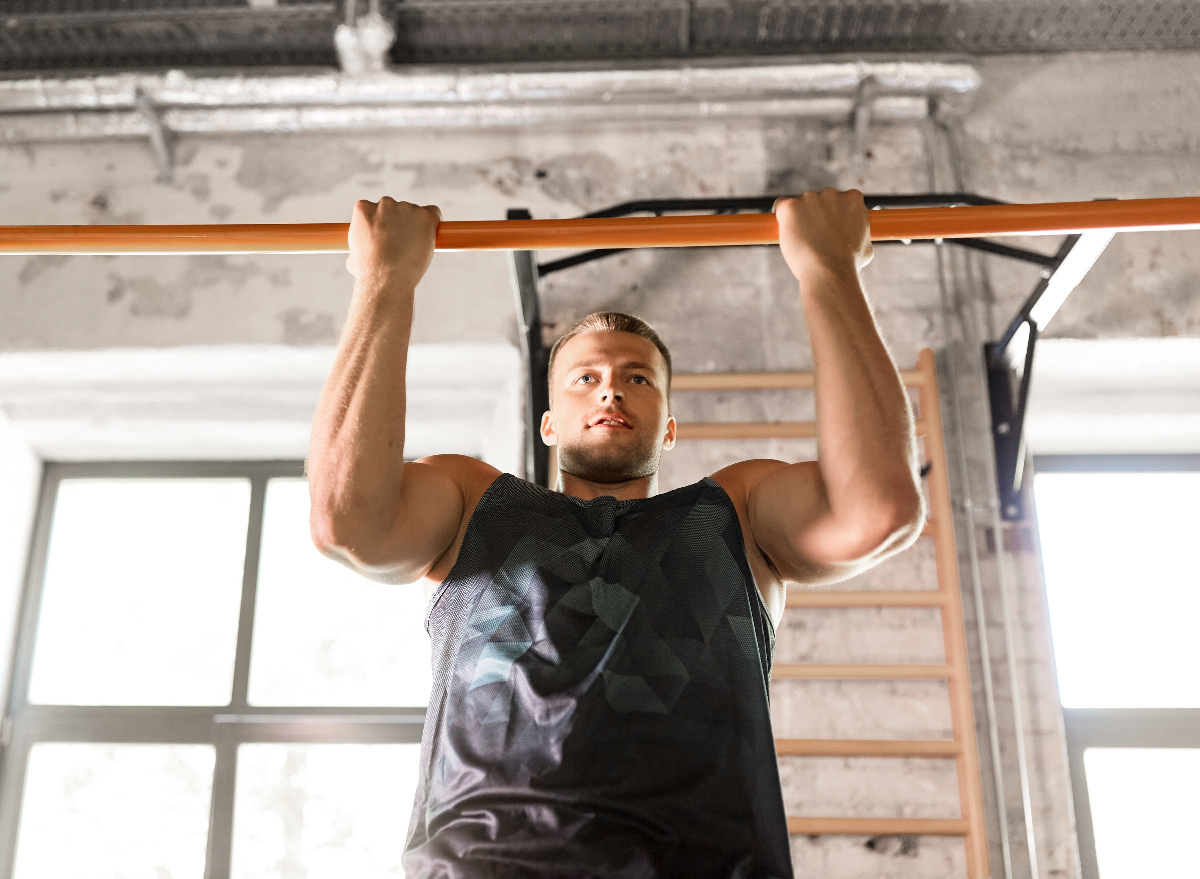
If your fitness goal is to build strength, you must work out every part of your body. Why? Well, neglecting certain muscle groups while training others could result in injury. Fortunately, we're here to help. We chatted with Rachel MacPherson, CPT, an ACE-certified personal trainer with Garage Gym Reviews, who shares her ultimate full-body strength workout for every part of your body. This workout is designed to target every muscle group, leaving you feeling strong and ready to take on the world.
What makes this routine stand out is its versatility. Regardless of where you're at, you can tailor the intensity and progression of each exercise to suit your fitness level and goals. Remember: Only you have the power to push yourself to new limits and watch your strength explode.
Read on for MacPherson's killer full-body strength workout for every part of your body, then be sure to check out the 5 Science-Backed Ways to Get a Lean & Toned Physique.
1. Legs
Barbell Squats
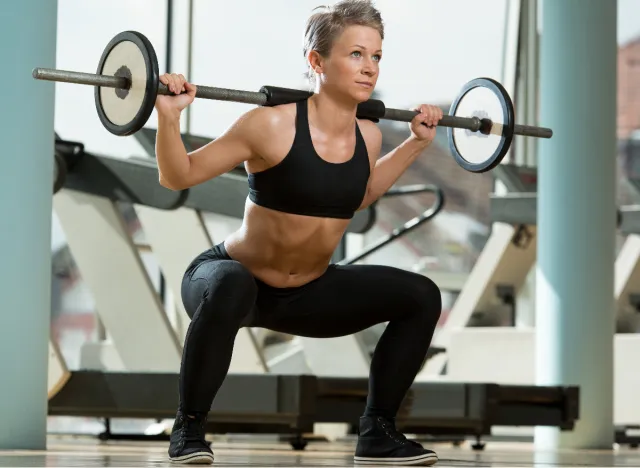
"Squats are a major compound lift and have a place in every strength-focused program," says MacPherson. "They work your quads when done with proper form in a more upright position but also hit your glutes. Squats can be loaded with heavy weights and help you build total body strength and stability."
To set up, step under a racked barbell so the bar is on your shoulders and traps. Stand to lift it from the racked position, and step back in your natural squat stance with both feet. Breathe into your stomach and ribcage as if pushing them out laterally, then brace your core. Hinge your hips back, then bend your knees toward your feet. Keep your chest up. Maintain a tripod foot with the little toe, big toe, and heel gripping the floor, and keep your back straight. Lower as deep as possible without allowing your spine to flex. Ensure you rise leading with your collarbone, not your hips. Do five sets of 10 reps.
Stiff-Legged Deadlifts
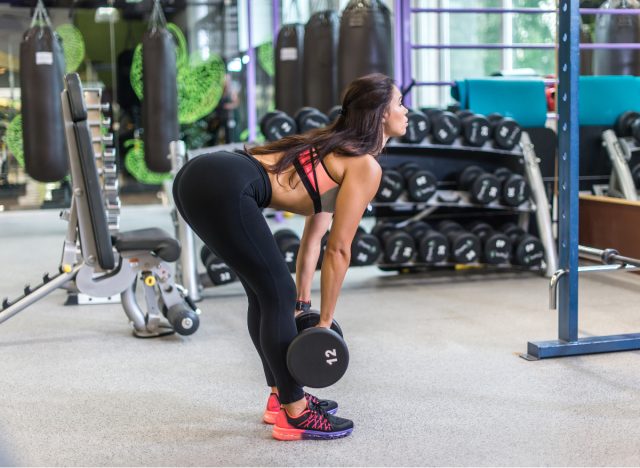
"Stiff-legged deadlifts are one of the best hinging exercises for your hamstrings. They build strength in your hamstrings using hip flexion and extension. Since this exercise can be loaded with heavier weights, you can build massive strength using it. It also provides a deep stretch under load, growing muscle mass and improving hamstring flexibility and mobility," explains MacPherson.
Begin by holding heavy dumbbells in both hands, letting them rest on your thighs. Alternatively, grasp a barbell with an overhand grip. Create a slight arch in your lower back (extension) to protect it from the tendency to round during this movement. Brace your core. Hinge your hips back, sticking your glutes behind you, pointing them up and back. Keep your knees straight but not locked out, with a slight bend. Maintain this throughout the exercise. Slowly lower the weight down your thighs, keeping the bar or dumbbells close to your body. Raise back up by contracting your hamstrings and glutes once you feel a big stretch in your thighs or can no longer maintain your spinal position. Complete four sets of eight reps.
2. Core
Suitcase Carry
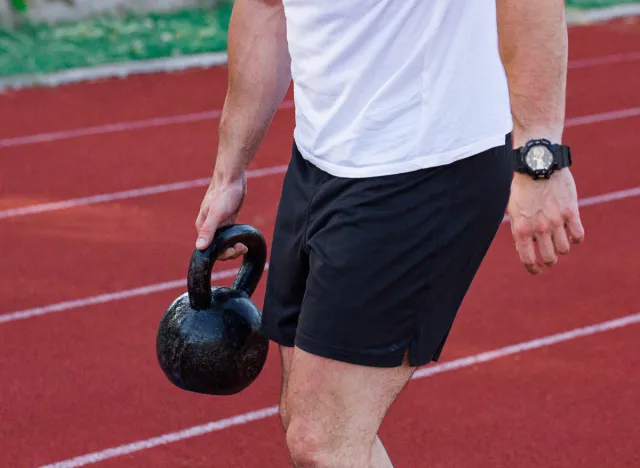
"The suitcase carry is a core stabilization movement that builds abdominal strength. It's a unilateral (one-sided) loaded carry that mimics daily activity, such as carrying groceries, which makes it a functional movement. The suitcase carry increases spinal stiffness, so you are less likely to have a sore back, and your compound lift form will improve," says MacPherson.
Stand with your feet shoulder-width apart. Hold a dumbbell or kettlebell in one hand with an overhand grip while. Brace your core, and keep your shoulders back. Take a step forward and walk with steady, deliberate steps keeping your core contracted and hips even, resisting the pull to tilt to the weighted side. Walk for a predetermined distance or until you are close to failure. Switch arms to repeat on the other side. Perform three rounds of 30-second carries.
Pallof Press
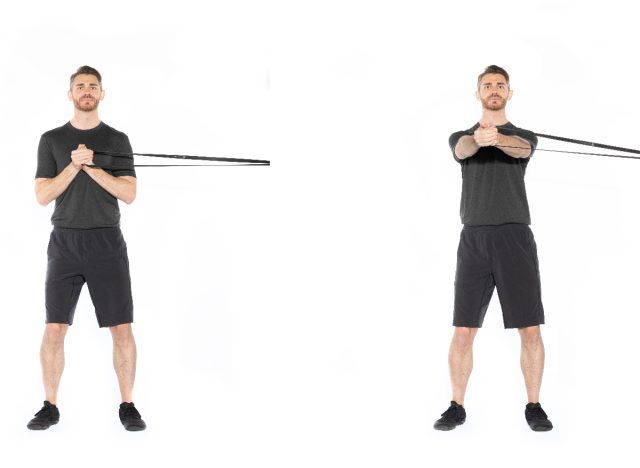
"The Pallof press is an isometric exercise that increases abdominal and core strength and stability," states MacPherson. "Transverse plane exercises such as the Pallof press improve rotational movement and function, vital for preventing injuries, especially at the hips and spine, and for improving compound lift stability with better hip alignment."
Start by standing with your left side next to a cable machine or anchored resistance band at about chest level with the handle in your left hand. Stand tall, bracing your core with your shoulder blades back and down. Place your feet shoulder-width apart. Hold the cable or band handle in both hands, and push the handle out in front of you at about chest height. Hold the handle out for 10 slow breaths while bracing against the resistance of the weight. Do this for three sets.
3. Glutes
Sumo Squats
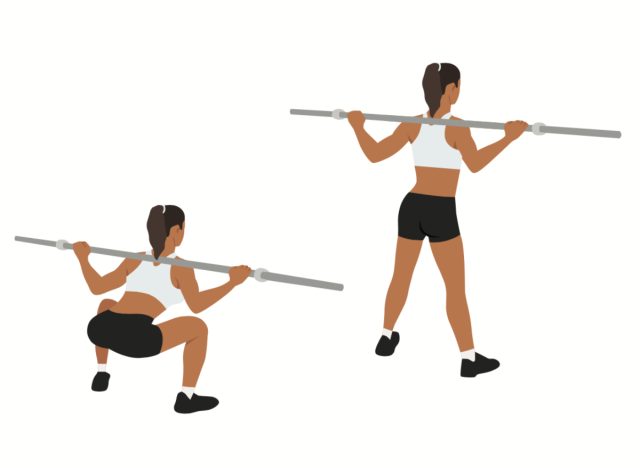
MacPherson tells us, "Your glutes don't require separate exercises since they'll be worked with other leg exercises, but the sumo squat is a squat variation that will target the glutes more than the quads."
For sumo squats, stand under a racked barbell with the bar across your shoulders and traps. Unrack the barbell, and step back. Place your feet wider than your usual squat stance, with your toes slightly pointing to the side. Lower your body, keeping your knees out, and sit back and down, keeping your chest up. Go as deep as you can without your back rounding. Aim for four sets of 12 reps.
4. Arms and Shoulders
Close-Grip Underhand Pull-ups
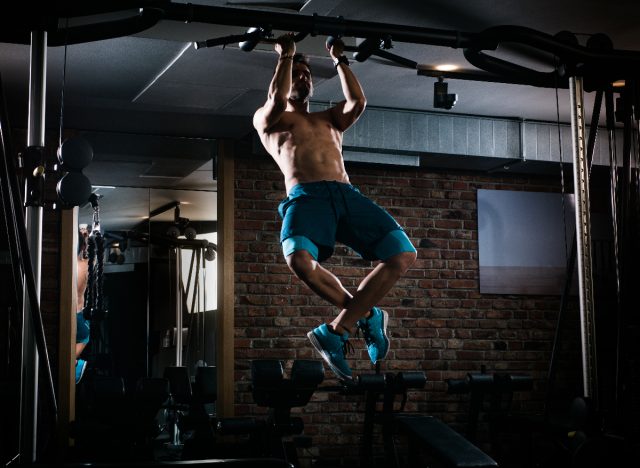
"Close-grip underhand pull-ups will work your biceps, shoulders, and back. It's a fantastic accessory exercise for deadlifts," says MacPherson.
Grasp a pull-up bar with an underhand grip with your hands roughly six inches apart. Slide your shoulder blades back and down, breathe, and brace your core, squeezing your glutes. Pull yourself up using your back and bicep muscles until your chin is over the bar. Slowly lower your body with control. Perform four sets of as many reps as possible.
Tricep Dips
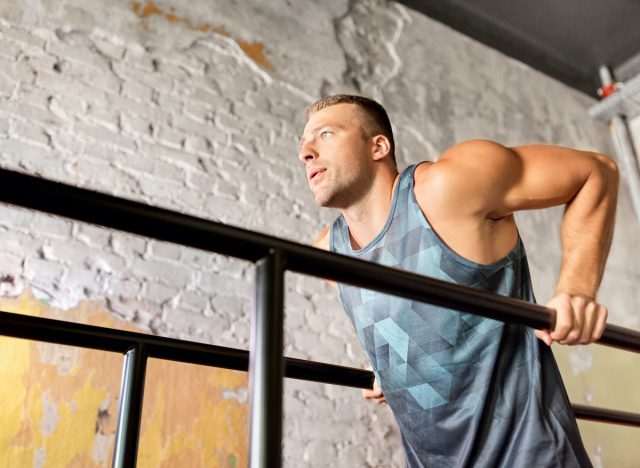
"Tricep dips using a machine or bars work your chest and triceps and build functional strength and shoulder joint stability," explains MacPherson.
Position yourself inside dip bars or a machine, and grasp the handles with your palms facing in. Extend your elbows to lift yourself off the ground or platform. Keep your elbows tucked into your sides to isolate your triceps. Keep the bars narrow, and tip your feet out in front of you to keep yourself upright. Lower slowly with control, using as full of a range of motion as your shoulder joints allow. Pause for a count before pushing back up. Complete four sets of as many reps as possible.
5. Back
Deadlifts
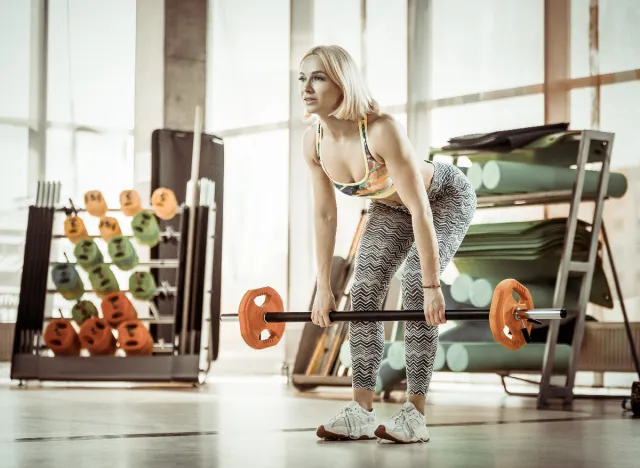
"Deadlifts work your hip flexors, spinal erectors, traps, and upper and low back muscles," MacPherson says.
Engage your lats—pull your shoulder blades back and down as if you are trying to slide them into your back pockets. Screw your feet into the floor, and externally rotate your thigh outward in your hip sockets. Lift the slack out of the bar until you hear contact between the plates and the bar. Sit down and back so you rely on the bar to keep you upright. Push your hips back, and start to lift the bar first. Don't lift your hips until you're lifting the bar, then keep your hips close to the bar, raising it with your chest elevated and the bar close to your body. Reverse slowly, lowering the bar close to your body. Do four sets of eight reps.
6. Chest
Bench Presses
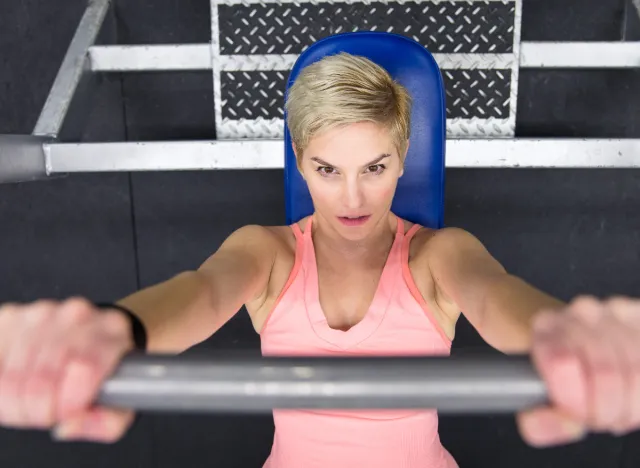
The best strength workout for every part of your body wraps up with doing bench presses for your chest. "The bench press is another major compound strength movement that belongs in every strength-focused program," says MacPherson. "You can perform flat and incline bench presses using a barbell or dumbbell. Some people may see even more benefits from using a cambered bar which allows a more excellent range of motion and a deeper stretch."
Lie on a bench with a loaded barbell racked above you. Grasp the bar wider than shoulder width. Retract your shoulder blades, and arch your back so your chest is higher. Breathe in, brace your core, plant your feet, and squeeze your glutes. Unrack and position the bar over your mid-chest. Lower by bending your elbows until the bar touches your chest. Pause for a count before pushing the barbell up. Think about throwing the barbell upward with force. Complete four sets of 12 reps.









